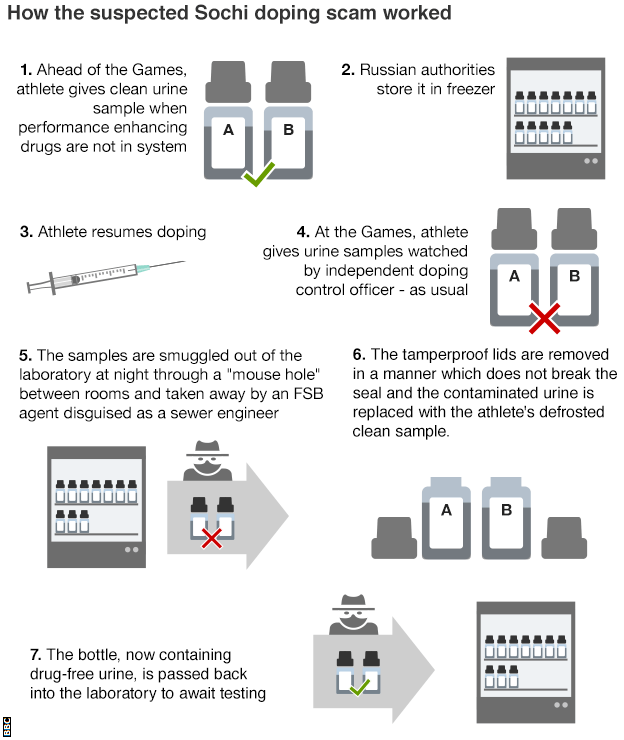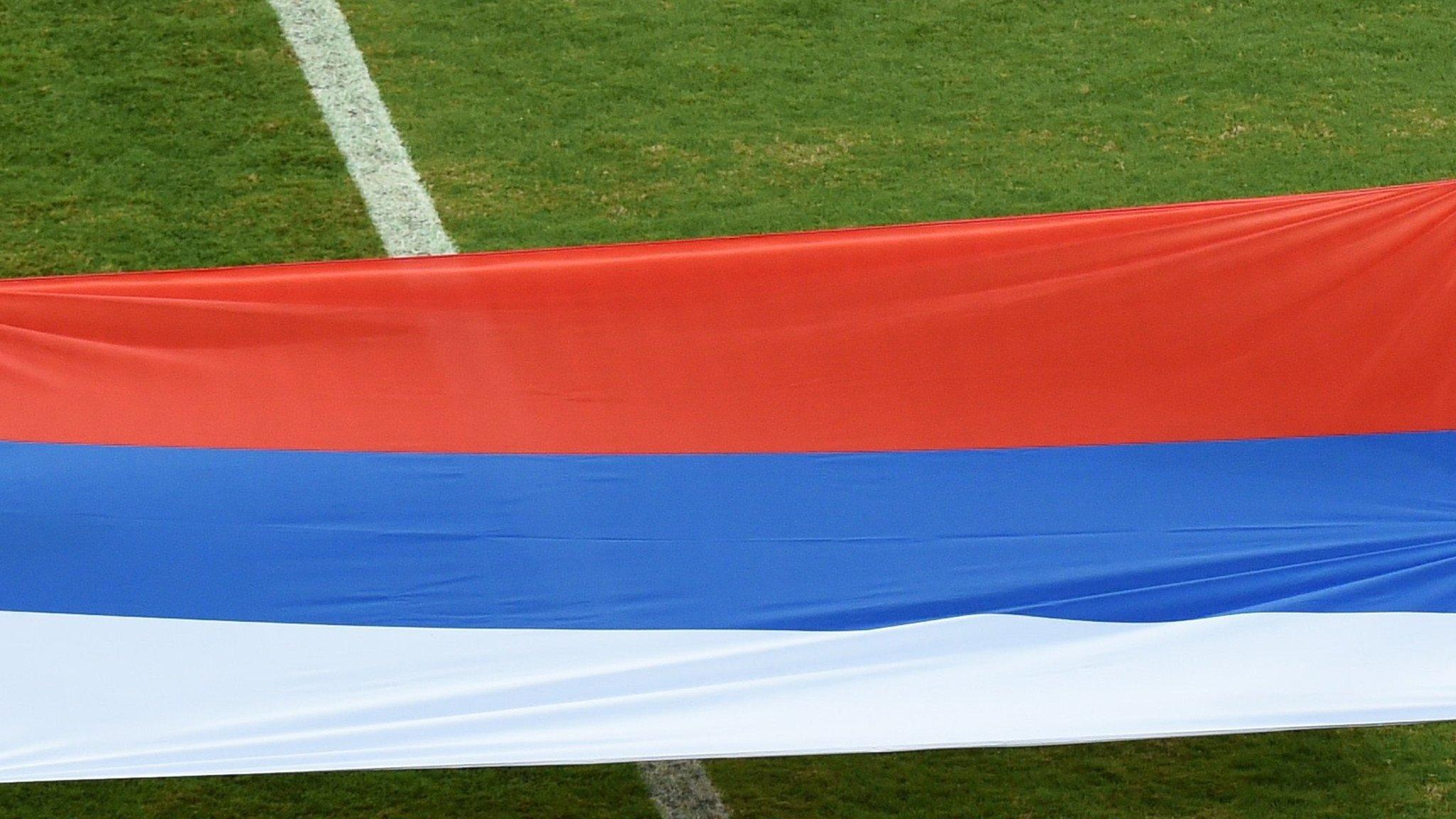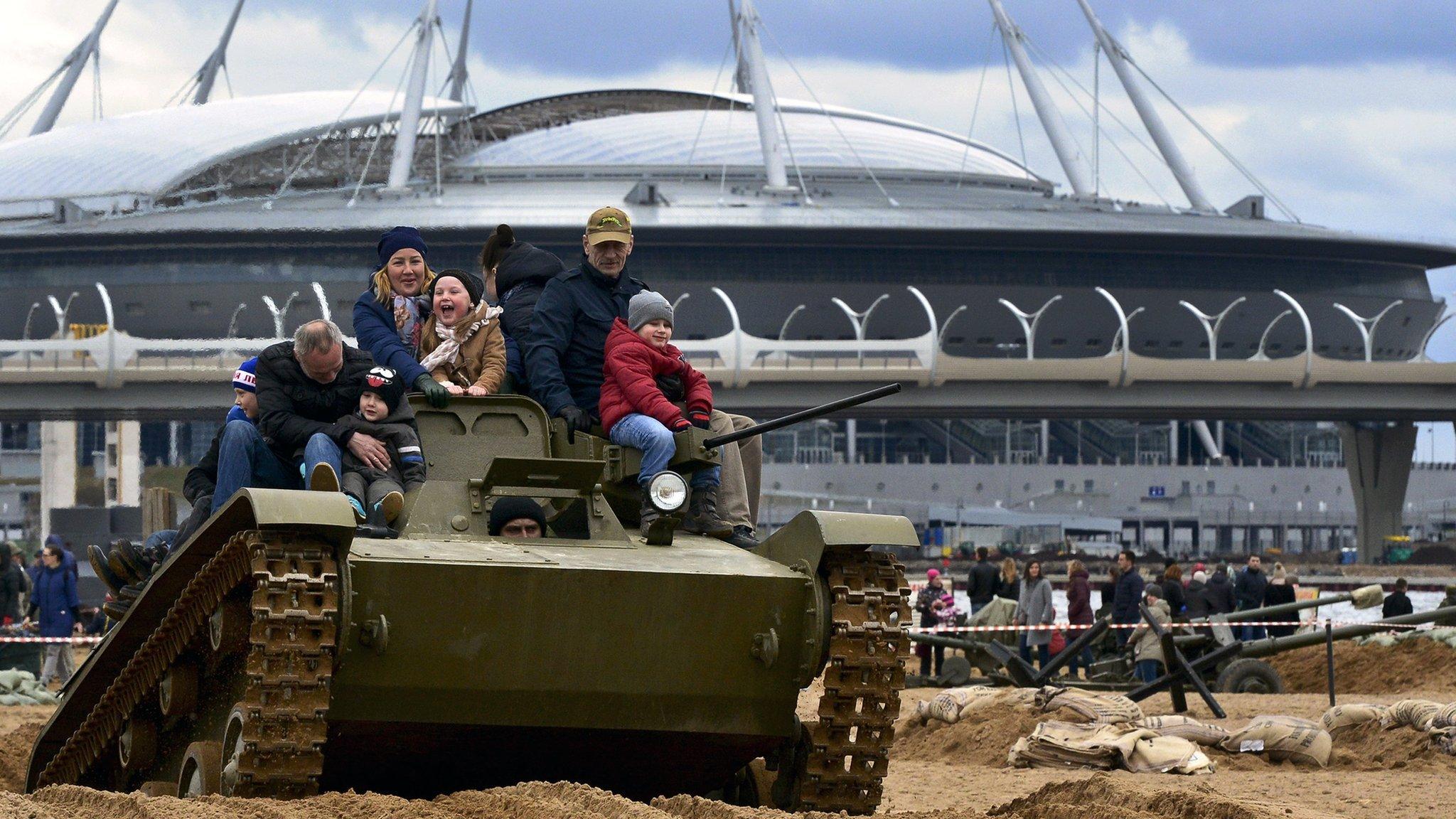Fifa: Russian doping claims are 'made-up news', says World Cup organiser
- Published
'We don't see doping as a problem in football' - 2018 World Cup chief Sorokin
Russian football does not have a doping problem, and claims that suggest otherwise are "made-up news", says 2018 World Cup chief Alexey Sorokin.
Fifa has confirmed it is investigating whether Russian players benefited from the state-sponsored doping programme outlined by the McLaren report in 2016.
Football's world governing body has refused to say whether the members of Russia's 2014 World Cup squad are among the 1,000 athletes implicated by the report - though the Mail on Sunday, external has said they are.
Fifa did say all players tested at the tournament, including the full Russian squad, returned negative samples.
Sorokin, who chairs the local organising committee for next year's World Cup in Russia, said that meant it was "very bizarre" for media reports to "focus on things from the past".
"Despite the allegations there are clear-cut test results," he added. "That is the most important thing.
"We don't consider this to be a serious matter and it's very strange that it's in the papers."
However, the World Anti-Doping Agency, which commissioned the McLaren report, has acknowledged physical evidence of Russia's doping required to punish those responsible - such as positive samples - may be difficult to find., external
That is partly because the system Russia developed included a "disappearing positive" method that involved swapping samples known to be positive with clean ones.
The McLaren report said this system was used across at least 30 sports, including football, and that more than 1,000 athletes potentially benefited between 2011 and 2015.
It said the system was used to "corrupt the London 2012 Olympics on an unprecedented scale", while further techniques, including positive samples being secretly removed from anti-doping labs through "mouse holes" drilled by spies, were perfected at the Winter Olympics in the Russian city of Sochi in 2014.
The report's findings were based on forensic evidence and witness testimony, including that of a doctor who used to work within that system, Grigory Rodchenkov.
Sorokin described its conclusions as "speculation that has appeared on the basis of an incredible witness".
He added: "If there are facts, let's discuss facts. If there are no facts, let's discuss football."

- Published25 June 2017

- Published16 June 2017
